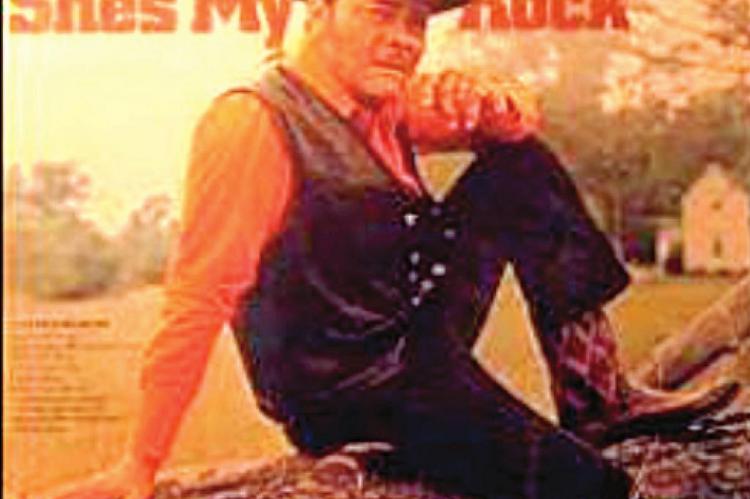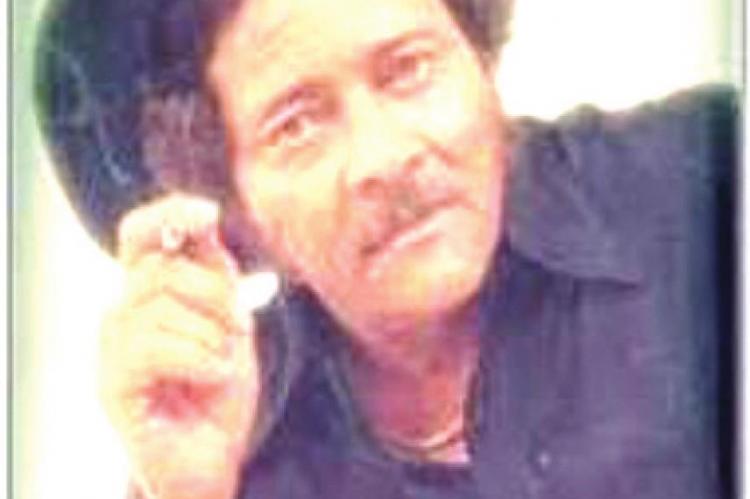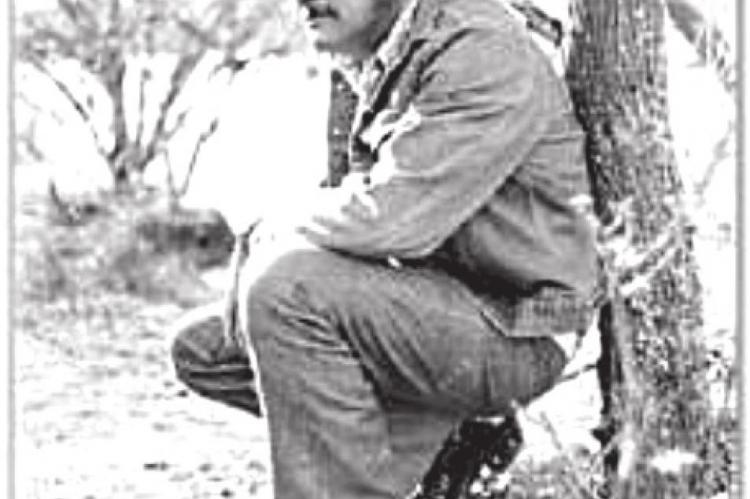FRENCHY EDWARDS (1929-1997)



Born Frenchie (or Frenchy) Edwards on December 24, 1929, in rural Seminole County, Oklahoma, he was one of the youngest of seven children born to Rescue Edwards (known as “Bud”), a farmer from North Carolina and his wife, Ollie (known as “Red”).
From an early age, Edwards dreamed of performing at the Grand Ole Opry. After moving to the San Francisco area and raising a family there, Edwards would play music in his spare time. However, in 1968, a job-related accident would change his life forever. While working as a forklift operator in a steel refinery, Edwards got trapped in a sealed-up tank and suffered severe carbon dioxide poisoning. He was sidelined for the next two years in either a coma, a near-coma, or in a state bordering on insanity.
As his condition improved, Edwards found work in odd jobs while at the same time devoting more of his energy to music. He sang in a honky-tonk style reminiscent of Lefty Frizzell and Merle Haggard. He became known as “Stoney.” In 1970, while performing at a benefit for his hero, Bob Wills in Oakland, California, Stoney was spotted by a local attorney, Ray Sweeney. In the wake of Charley Pride’s breakthrough success, the attorney knew that most labels were looking for a black country singer. Just six months after recovering from his accident, Edwards signed a contract with Capito Records. Like Charlie Pride and O. B. McClinton, Edwards and fellow Oklahoman Big Al Downing succeeded as African Americans in the predominantly white country music industry. In 1971, backed by a then little-know Wills tribute band called Asleep at the Wheel, Edwards entered the studio to record songs. “A Two Dollar Toy,” his first single at Capito, was inspired by an incident in which his plans to leave his family were aborted by the sound of a child’s toy. Having refused to sue the steel company, Edwards would also not allow his wife to accept welfare. Unable to support his family due to his disability, Edwards planned to sneak out of house so that there would be one less mouth to feed. However, as he was leaving, he stepped on a toy, waking his daughter, Janice.
Edwards released five albums at Capitol which included two singles to make the Top 20. While his chart success never reached the heights of Charley Pride, Edwards had a devoted following. One of his biggest hits, “She’s My Rock,” which peaked at No. 20 in 1973, was a No. 6 single for Brenda Lee in 1975 (as “He’s My Rock”) and a No. 2 hit for George Jones in 184. On at least one occasion, Jones invited Edwards on stage to sing it.
Another one of his popular songs was “Hank and Lefty Raised My Country Soul,” a tribute to Hank Williams and Lefty Frizzell. It hit the Top 40 in 1973. Allegedly, Frizzell spoke with Edwards after hearing the song, but there are conflicting reports of his reaction to it. One version states that Frizzell was moved to the point of tears that someone still remembered him, especially a black man. [3] Another account indicates that Frizzell used a racial epithet when he addressed Edwards. That same epithet would be found in one of Edwards› later recordings.
In 1976, one of his last chart singles created the most controversy. Many stations would not play, “Blackbird (Hold Your Head High)” because it contained the line “just a couple of country ______” despite the song’s affirmative message. He had fifteen chart singles for Capitol. After he made five albums, the company dropped him in 1977. He recorded for smaller labels after that.
In the early 1980s Edwards lost part of a leg in a hunting accident and had open-heart surgery, which caused his retirement. In 1991 he returned to music, cutting the album Just for Old Time’s Sake. This acclaimed album, produced by Billy Joe Kirk, featured many top session musicians, including Johnny Gimble, Floyd Domino, Leon Rausch, and Ray Benson. Stoney Edwards died of stomach cancer on April 5, 1997.
Citation
Larry O’Dell, “Edwards, Frenchy,” The Encyclopedia of Oklahoma History and Culture, https://www. okhistory.org/publications/enc/entry. php?entry=ED011.
© Oklahoma Historical Society. Wikipedia® is a registered trademark of the Wikimedia Foundation, Inc., a non-profit organization. https://en.wikipedia.org/wiki/Main
